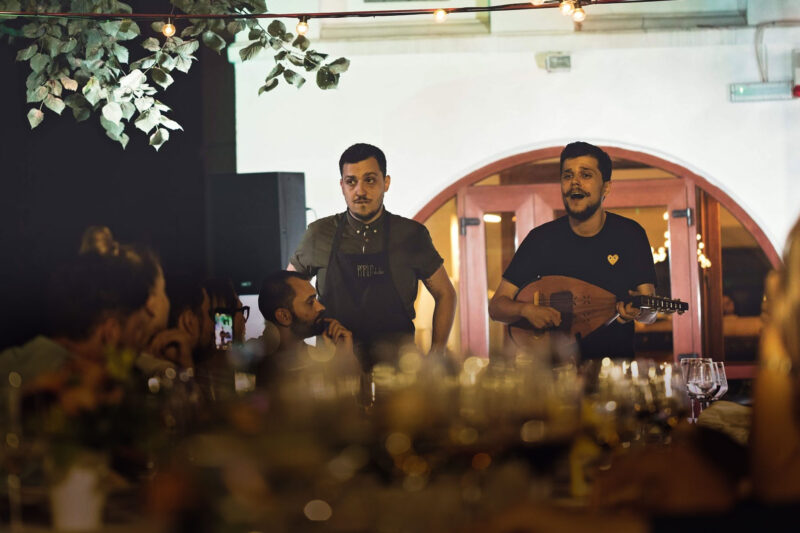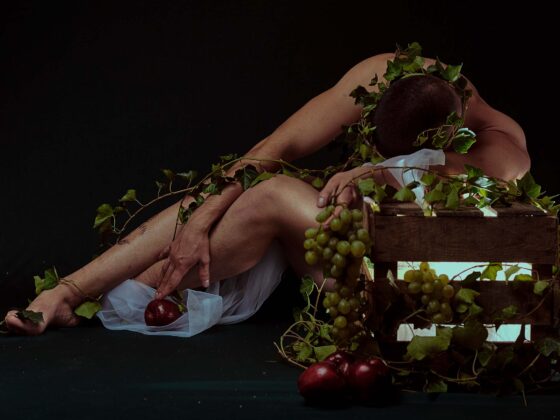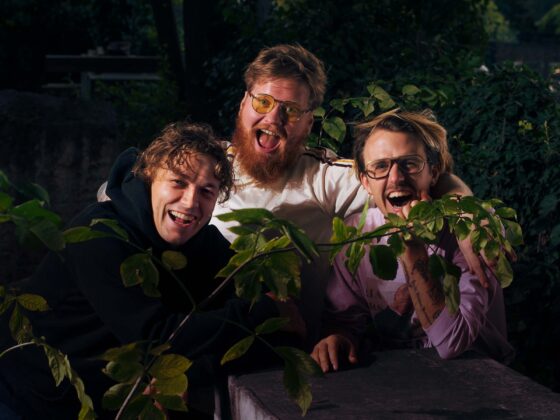Throughout history, food has been far more than just sustenance. It has been a defining element of our culture. And yet, our busy city life and current consumer habits have let some of that culture slowly die.
With Fragmente, Mihai Toader and Bogdan Simion are on a quest to discover and document the last remains of Romania’s traditional, micro-rergional culture. Find out how their project brings the food and music of the past into the present and the future.
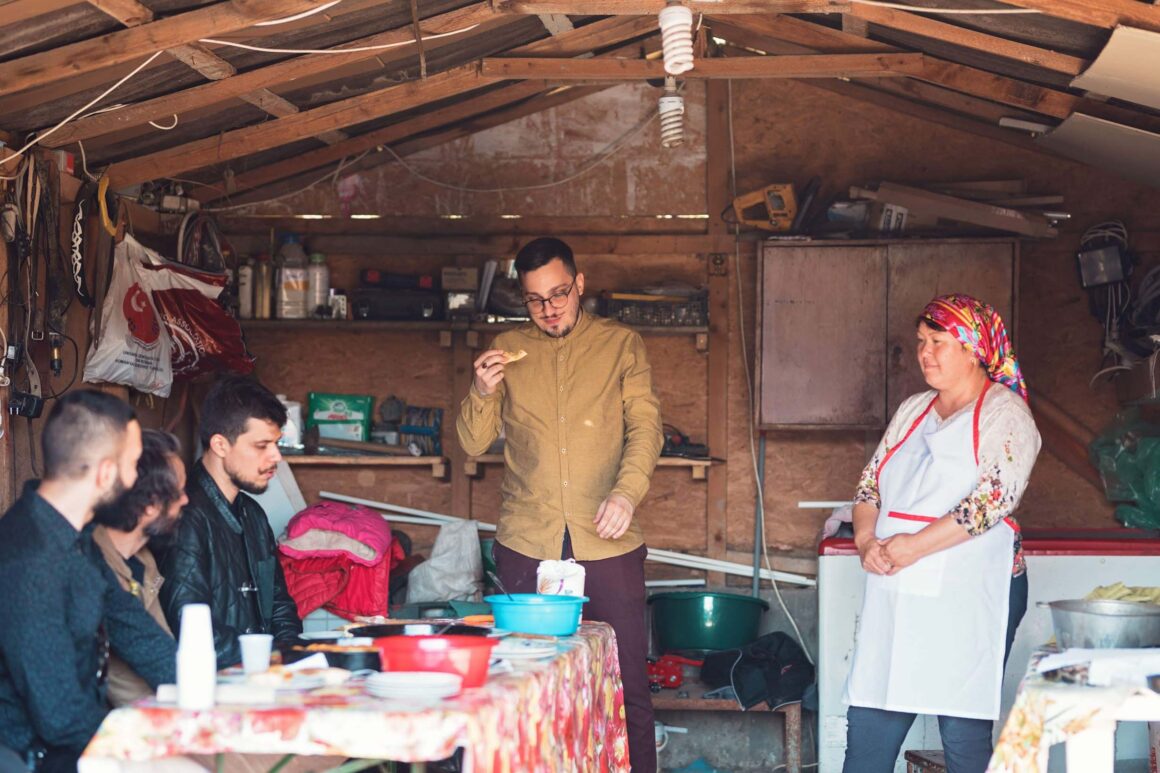

Fragmente, in short
What is Fragmente?
Fragmente is a project that aims to research the food and music of various micro-regions of Romania. The team travels to a chosen area and meet with locals, where they learn about food, music and the local culture. The research results in a pop-up dinner, as well as a new episode of the Fragmente series, on their YouTube channel.
Who runs Fragmente?
After meeting about four years ago, chef (and Masterchef Romania alumnus) Mihai Toader decided to join literature PhD and cobza player Bogdan Simion on his quest to research countryside traditions that are on the brink of extinction. Their matching passion for music and food, as well as their interest in the local culture led to Fragmente.
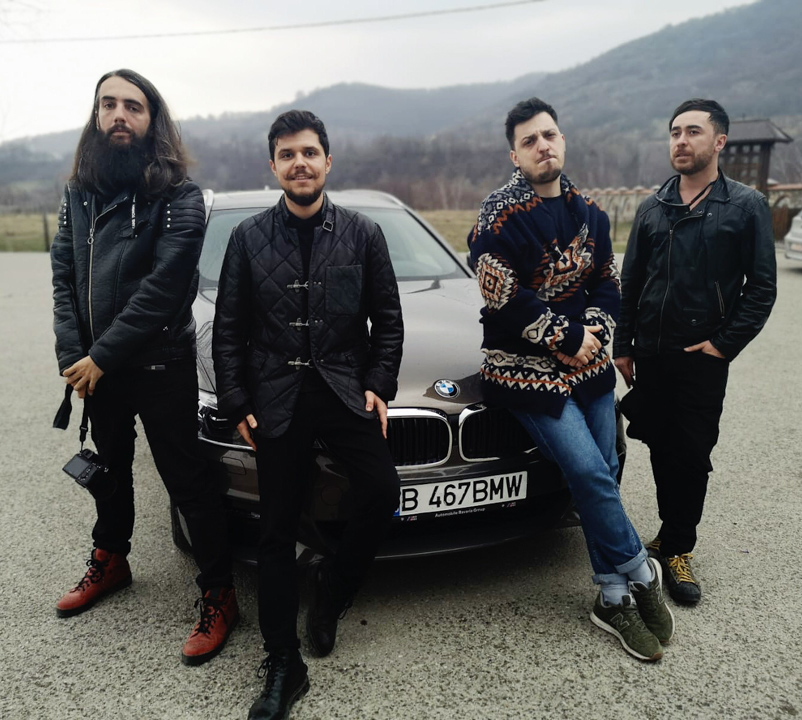

What about the pop-up dinners?
The pop-up dinners happen about six times a year at various locations around Bucharest. They consist of a six course tasting menu accompanied by live, traditional music as well as stories from Mihai and Bogdan’s travels.
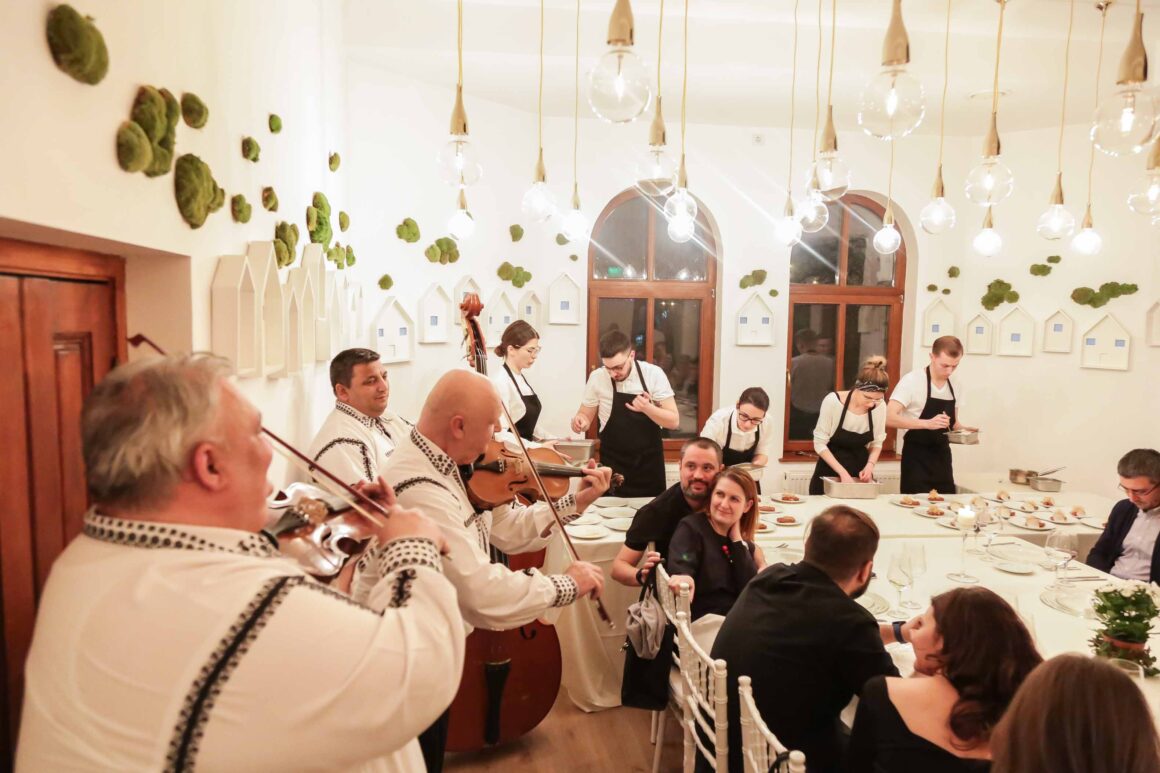

Fragmente: behind the scenes
I met Mihai after the Gault&Millau gala, last summer. I recognised him from the Fragmente series, which I had started watching with a lot of enthusiasm. A couple of late night wine spritzers in, I suggested featuring their project on this blog. Little did I know that I was to lose the entire recording of our first interview and I would have to steal more of Mihai’s time to refresh my memory and make sure the information I was going to write is accurate… [Thank you Mihai for giving me another hour of your time!]
Neither Mihai nor Bogdan come from a family of chefs or musicians. But they consider themselves part of a generation of revivalists: young people who research traditions without them having being passed down through generations. Fragmente is their passion project, and they don’t currently earn any money from it.
There is no doubt that curiosity is a necessary quality to run this type of project, and both Mihai and Bogdan are gifted with large amounts of it. Their cinéma vérité isn’t for everyone. Fragmente is for inquisitive people eager to discover local cultures that are only kept alive by a handful of people.
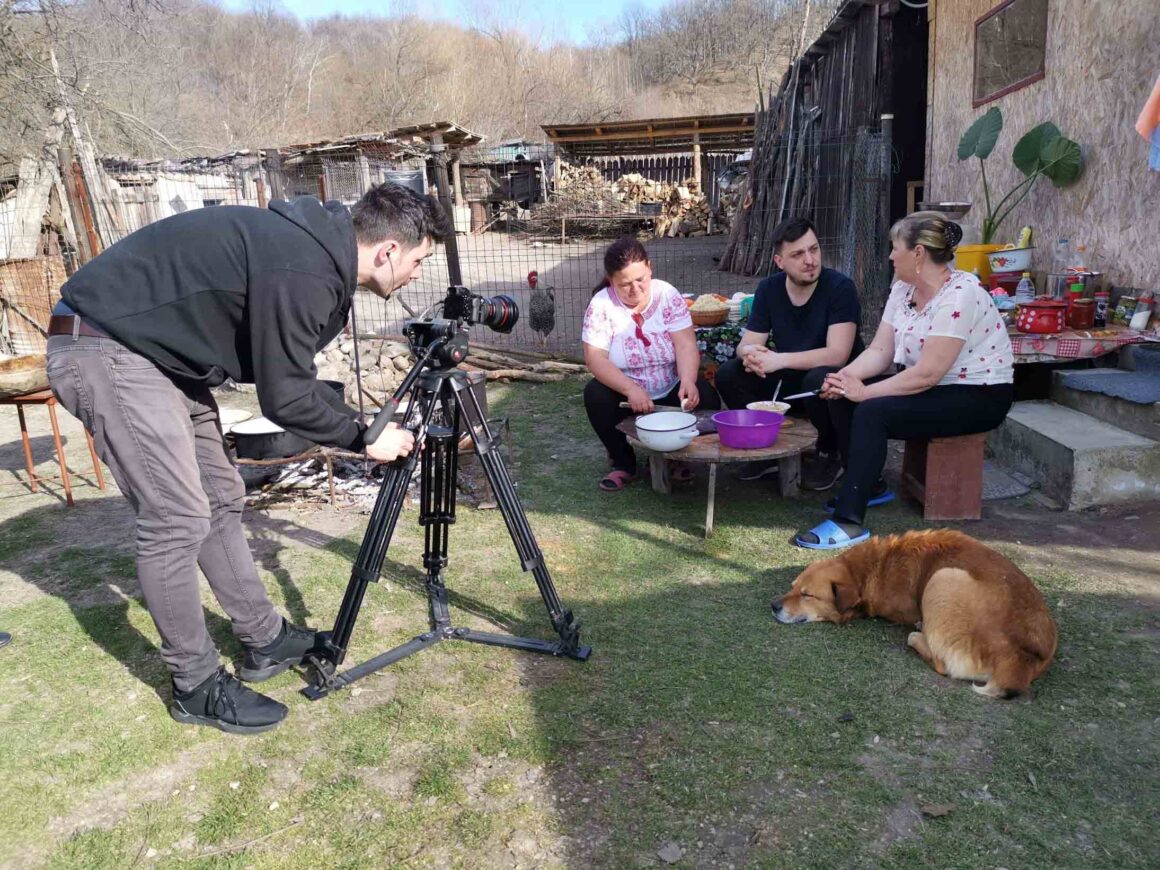

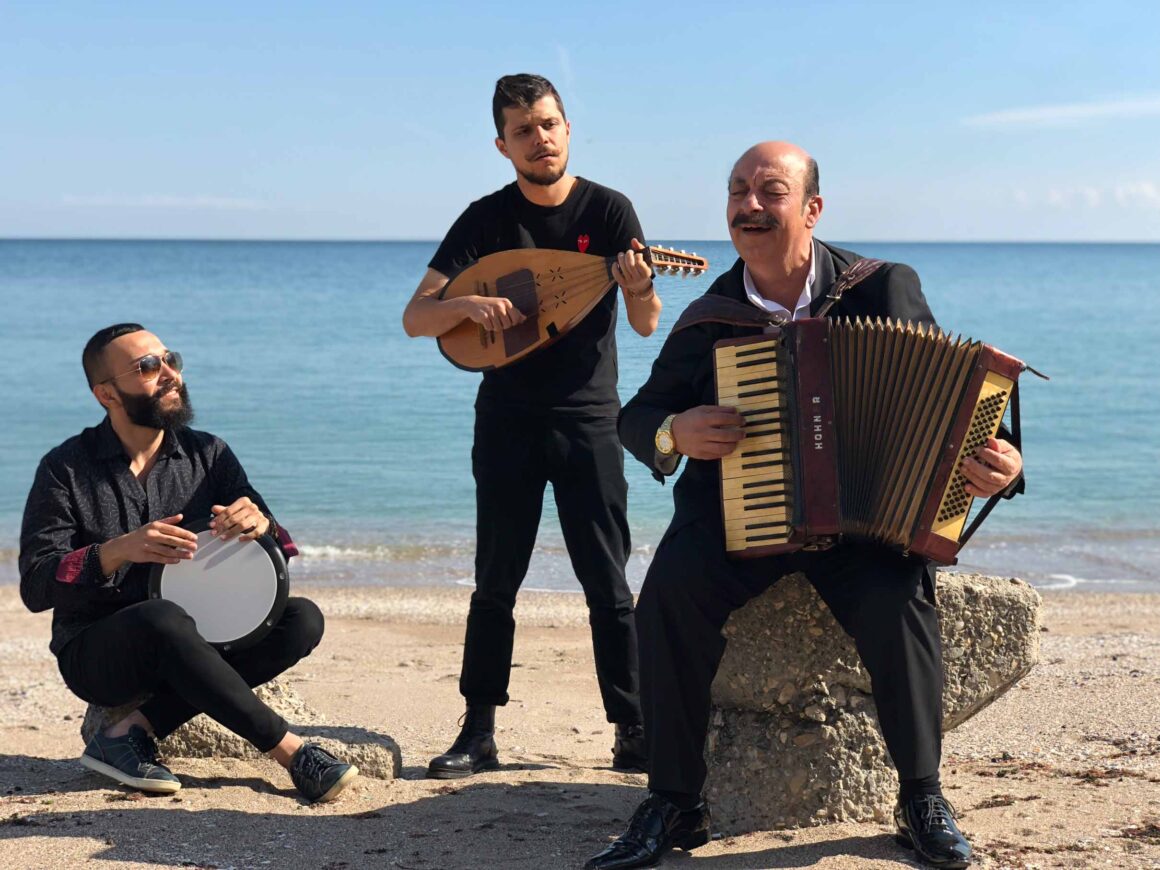

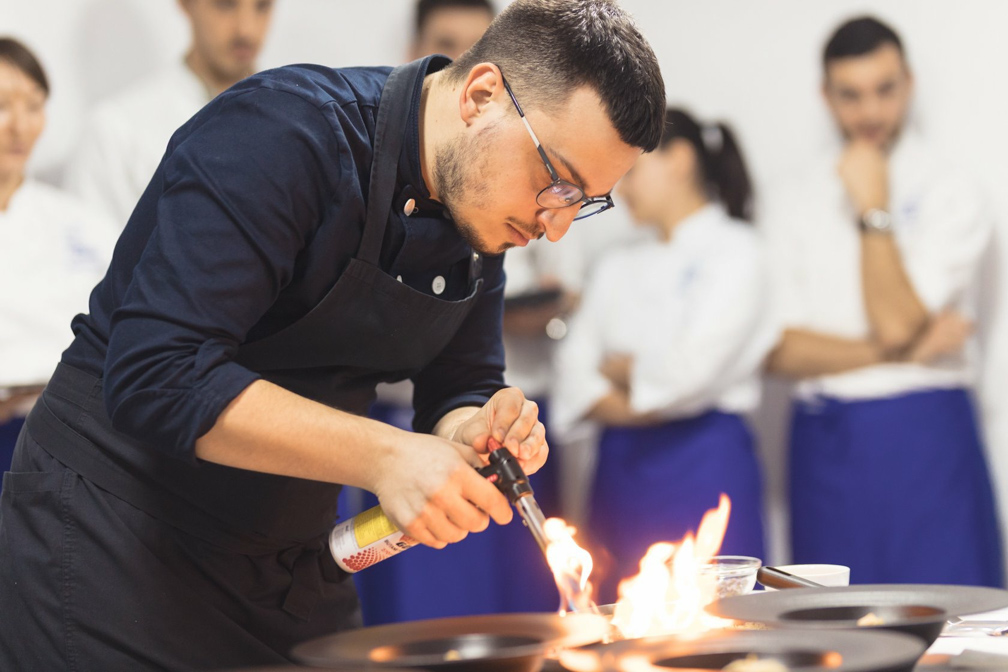

The people of Fragmente
‘A lot of these people disappear and there’s no one coming to learn their old ways‘, says Mihai. He believes that the younger generations are in charge of keeping traditions alive. This is even more challenging in a country like Romania, where traditions were dissipated by both communist times and the sudden switch to capitalism.
‘Communism made people change a lot. They often want to [impress], dress up, make things look different… They’re worried that the surroundings may not be beautiful or photogenic enough’, says Mihai after I ask him whether their local hosts show them their authentic, daily life. Mihai and Bogdan’s wish is to capture the countryside life as candidly as possible.
Fragmente, as the name suggests, brings together fragments from the various micro-regions it features. Mihai and Bogdan’s purpose is to promote the local people, their food, music and stories. ‘They are the real heroes. They live isolated, simple lives, but are truly fascinating’ adds Mihai.
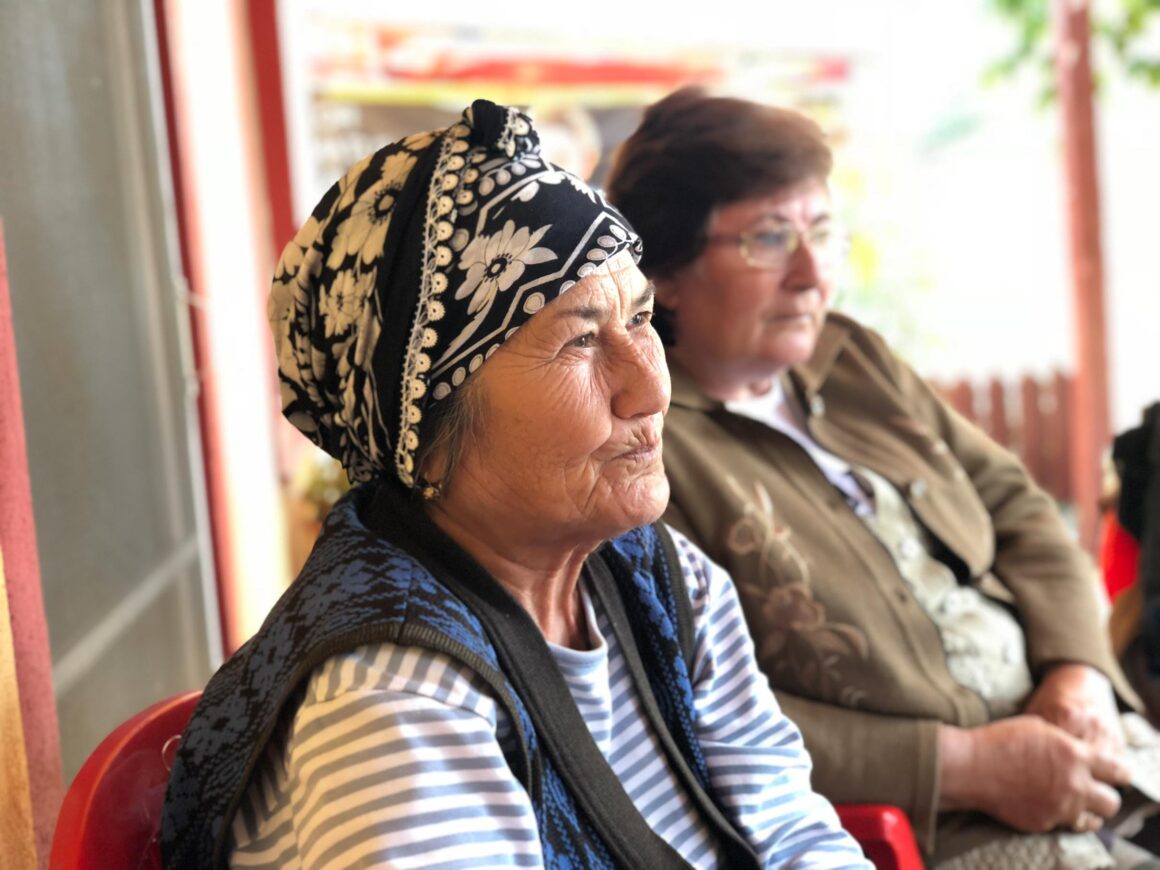

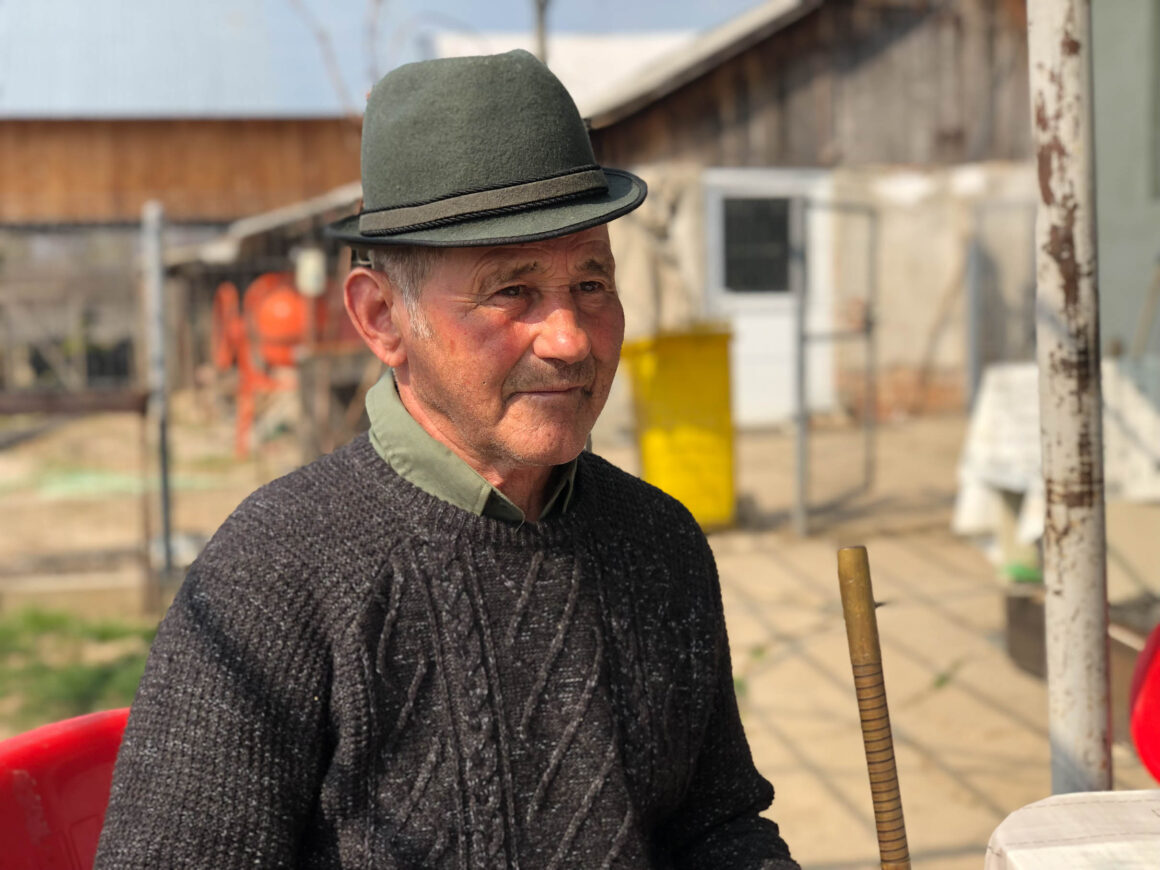

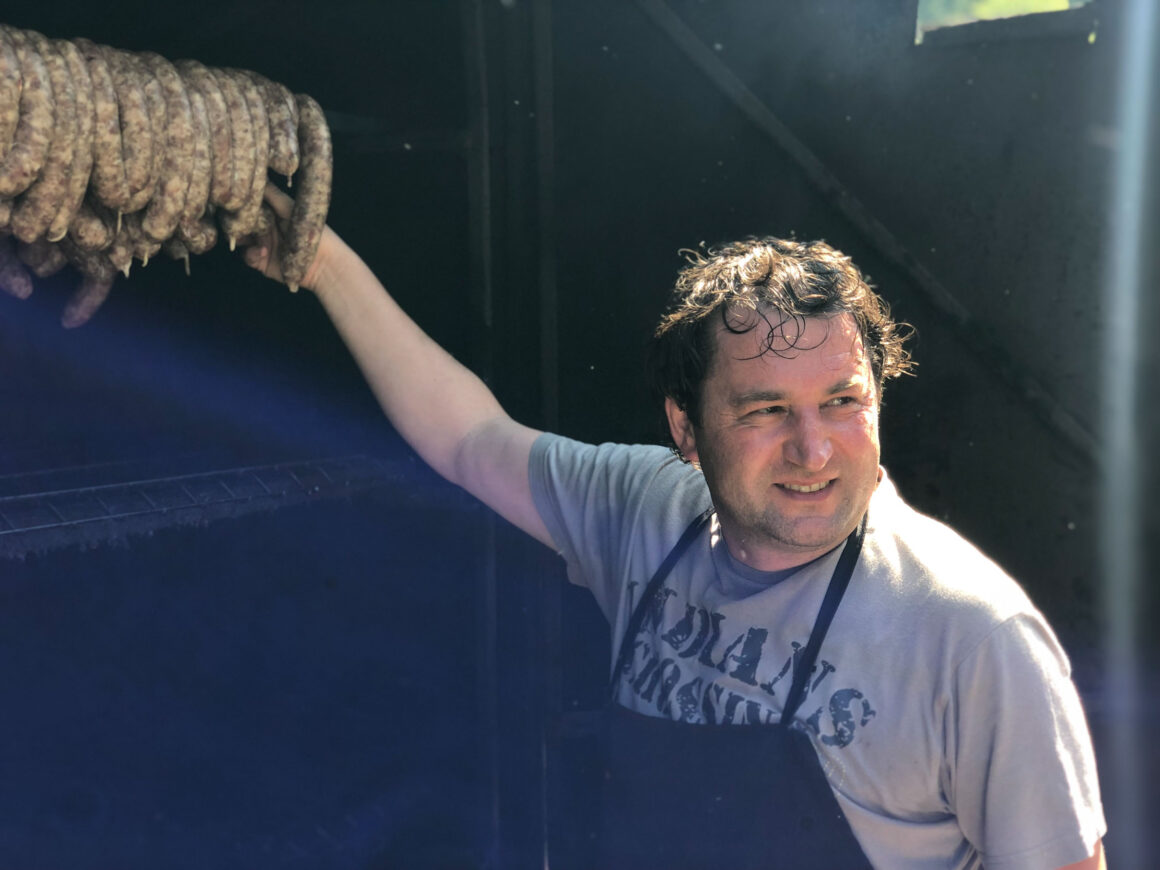

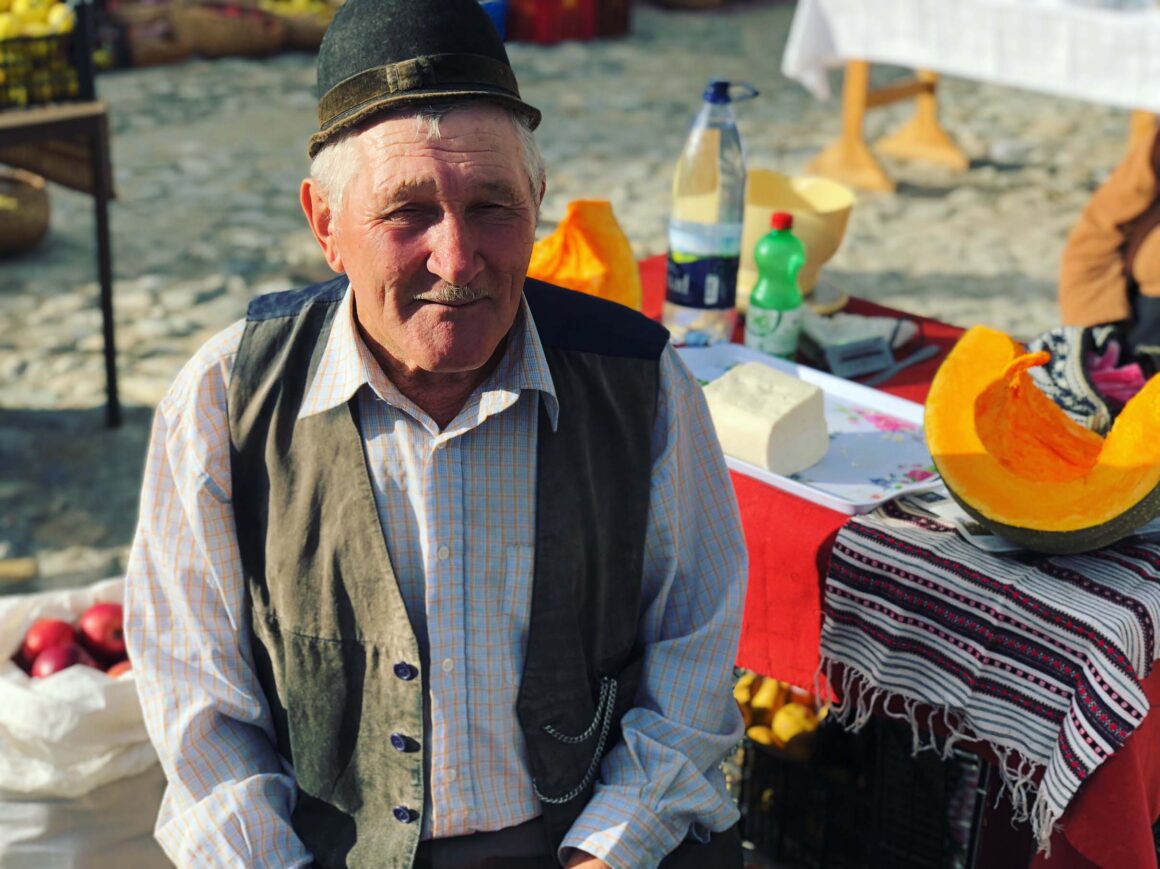

Authentic food like in the olden days
Thinking I would challenge him a little, I asked Mihai if he ever had any food that was inedible, or unpleasant. ‘There is no bad food. There is no food that I don’t like. Because that food has been cooked and has fed those people for years, and understanding the flavour is part of the experience’, he says.
Mihai tells me how different some dishes are from one micro-region to the next. ‘However, polenta is the unifying element throughout all regions’, he adds.
The young chef is fascinated by the produce he discovers during the Fragmente research trips. ‘There are still people doing things the old ways, and these ways are often applicable in the future as well. It would be great if these small producers could be supported, so that they can start earning some money from the hard work they put in’, he says.
For the follow-up dinners, Mihai always brings ingredients from the local producers. If they’re difficult to transport, he will search for producers from the region in the markets of Bucharest.
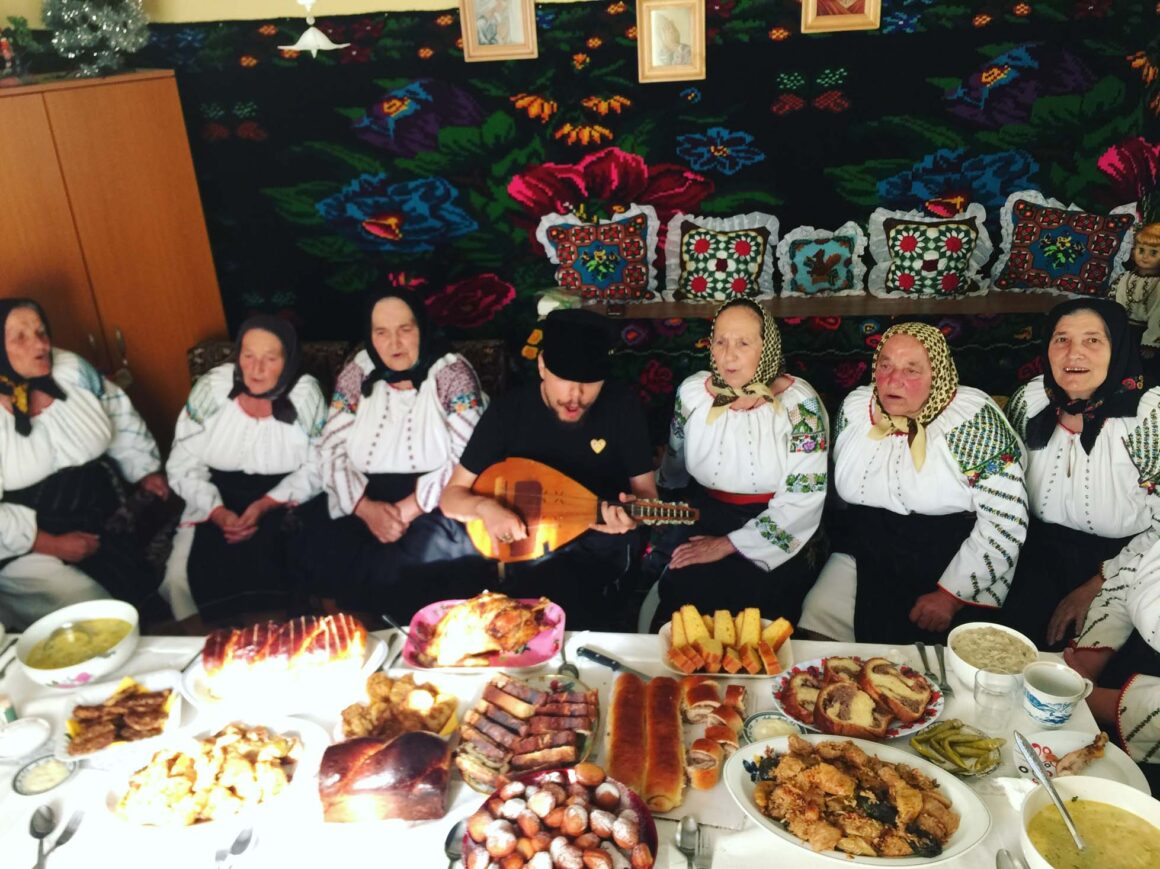

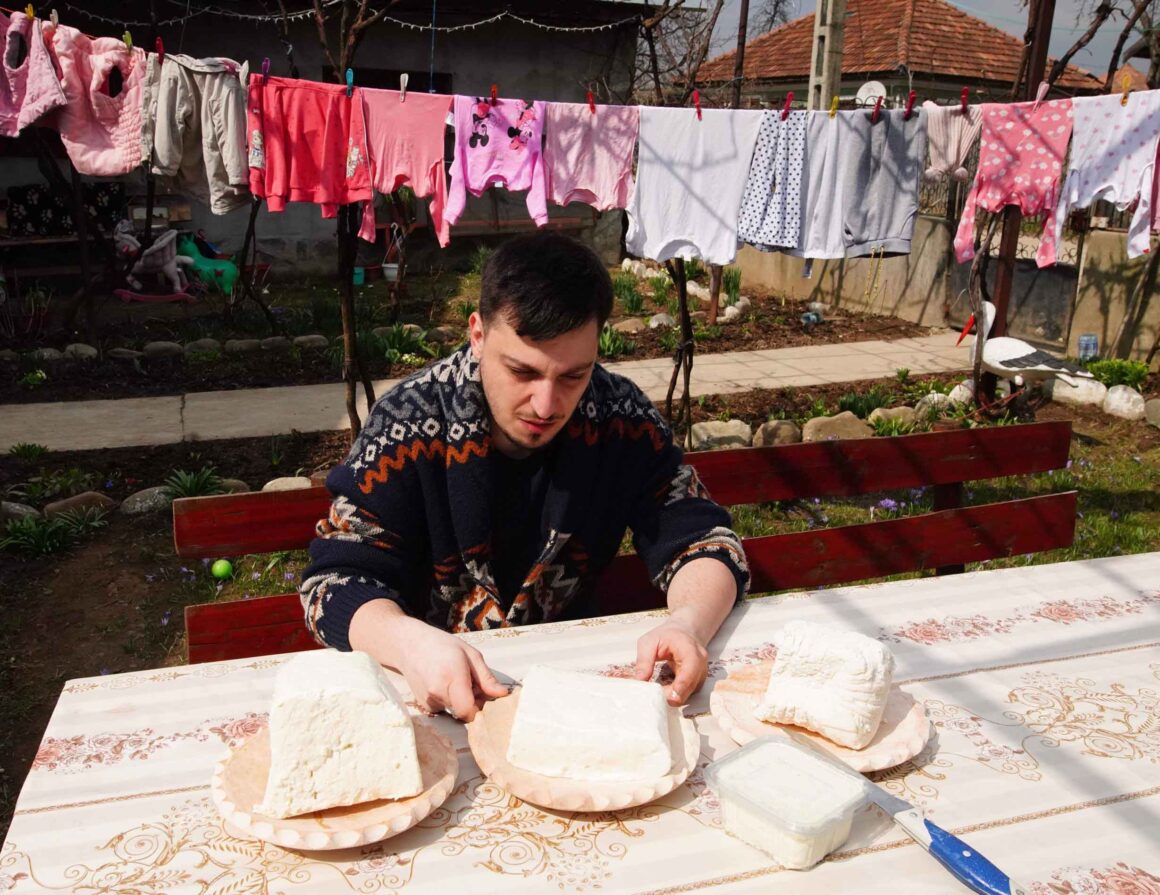

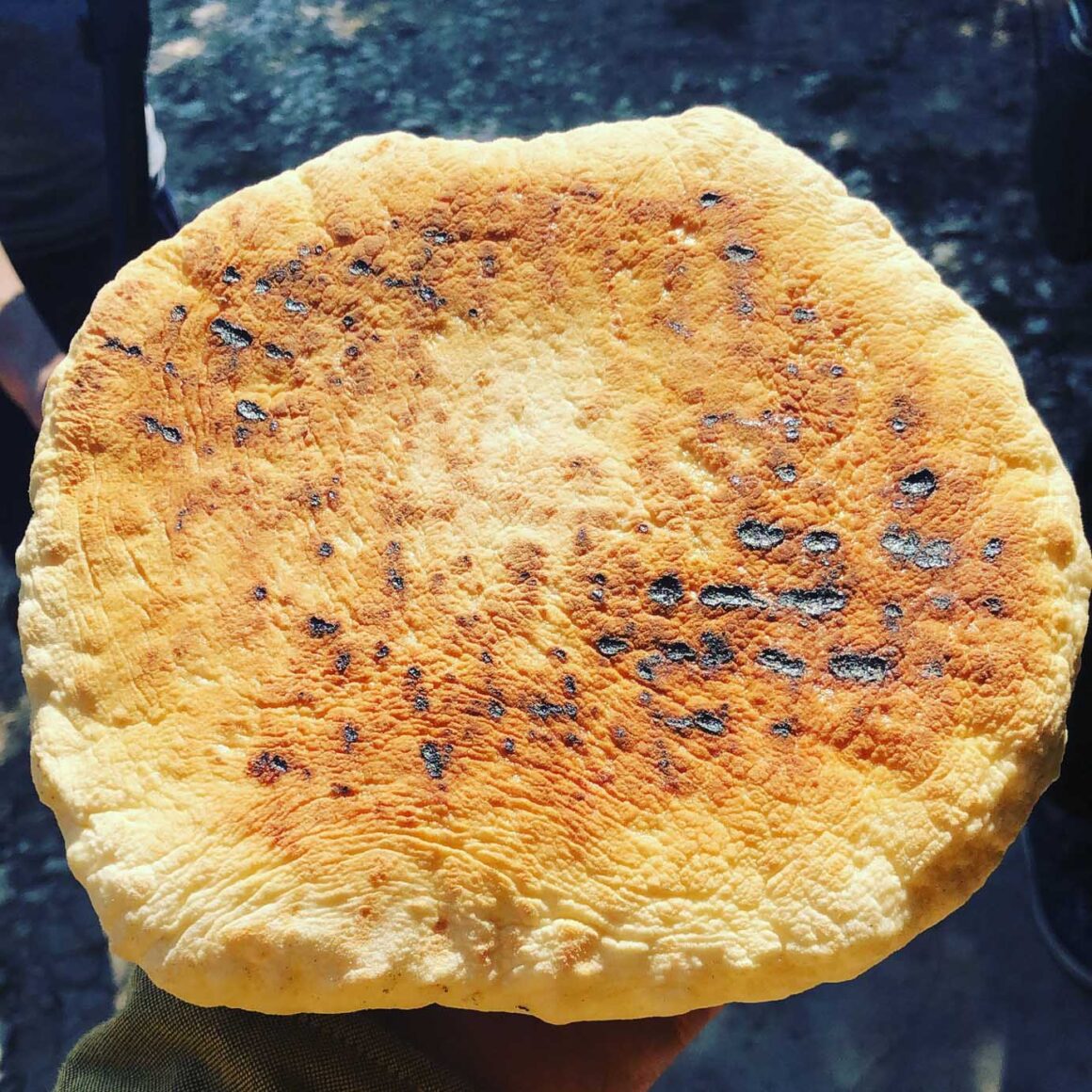

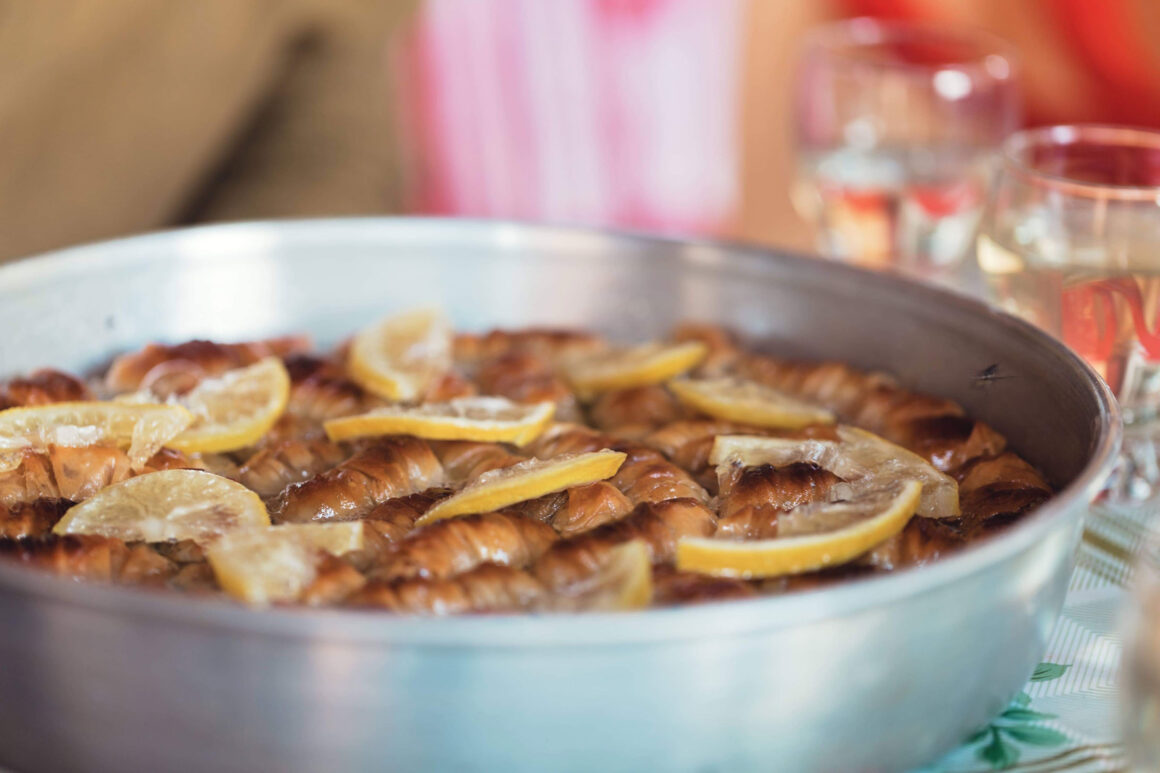

The research trips
Just as I imagined, their research is no easy thing. Especially since local authorities rarely prove to be helpful. This is Mihai and Bogdan’s biggest challenge. Once they find their first contact, things become easier.
One contact leads to another, and from one person to the next, they manage to organise their activities for the trip. But of course, not everything goes according to the plan. Sometimes people cancel at the last minute. Mihai, Bogdan and their team are always prepared for these changes, and most of the time their trips involve a lot of spontaneity and adaptability.
The Fragmente research trips usually take one or two days, depending on how far they go and what they find there. Not all trips are successful. Their trip to Botosani, for example, was anticlimatic, when they discovered that the Jewish communities no longer produce anything there. But that story still made it into their episode and pop-up dinner.
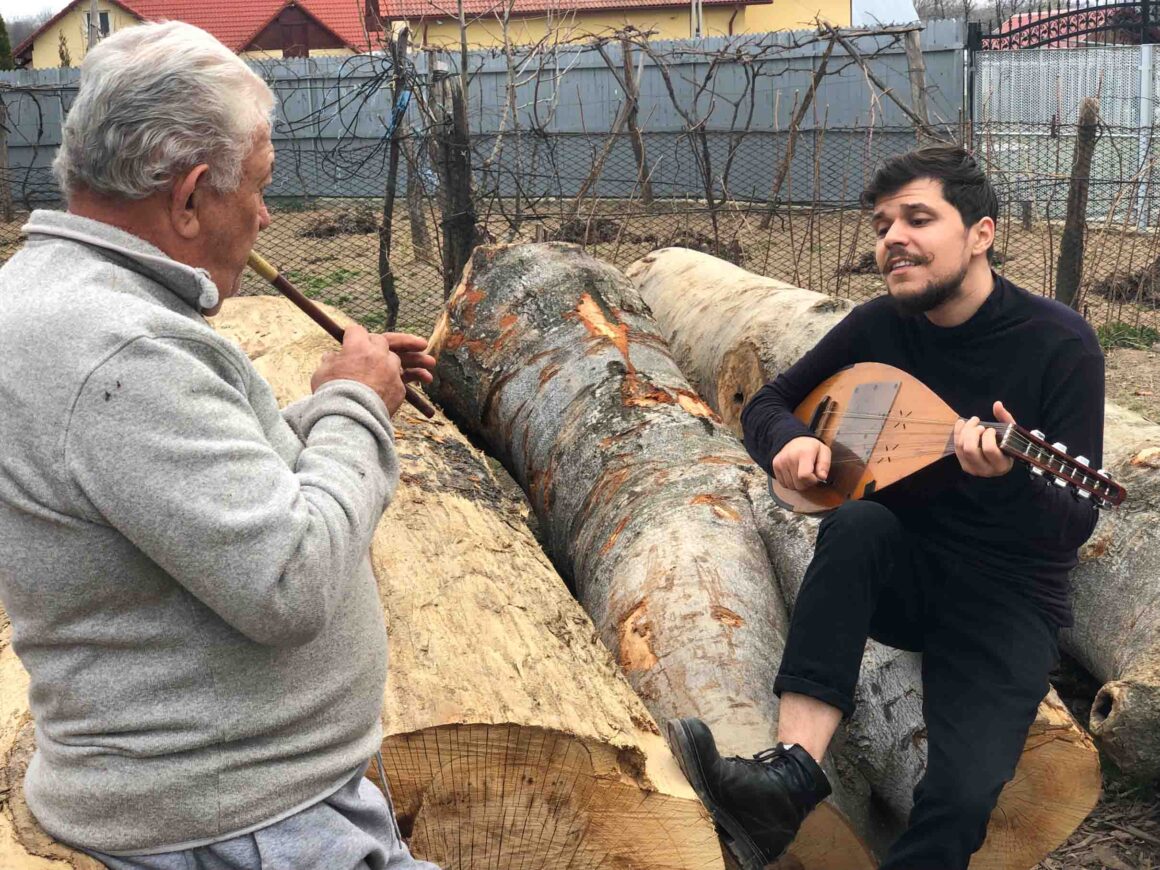

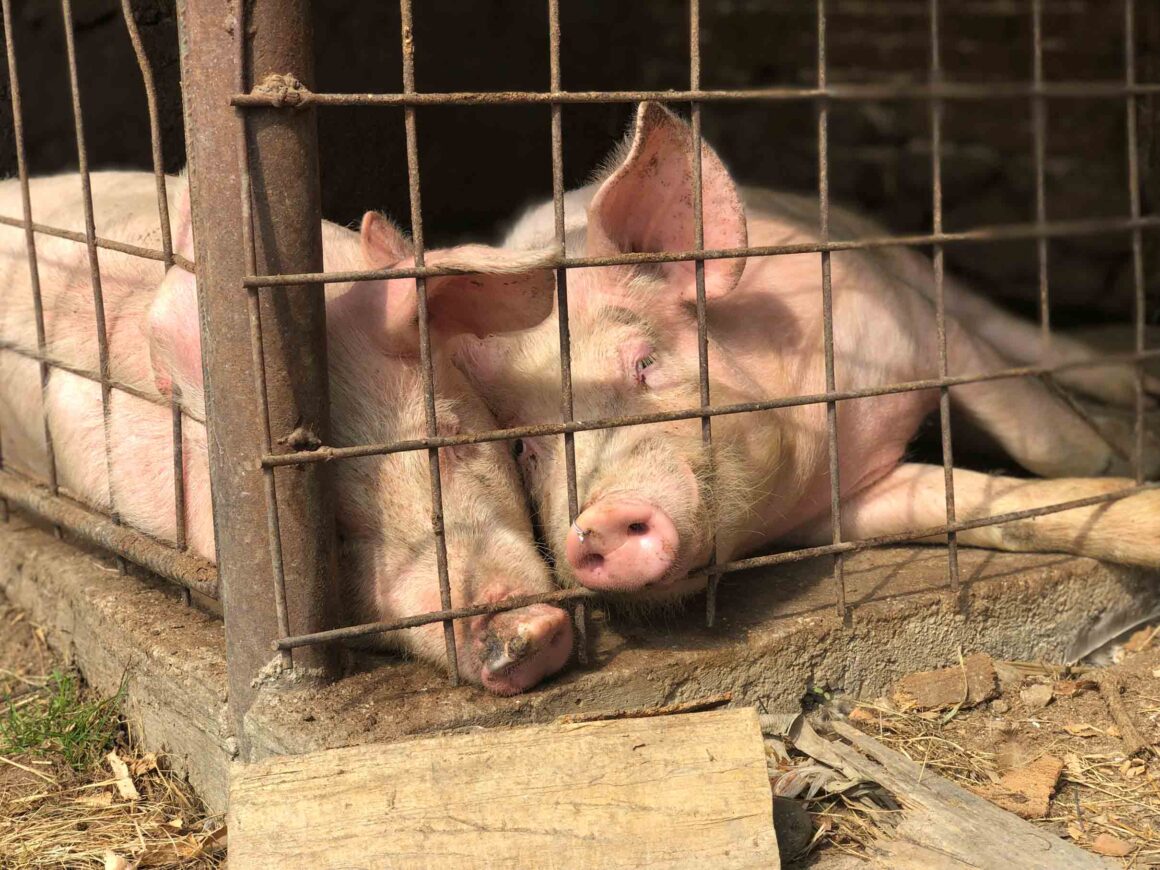

The Fragmente pop-up dinners
Every research trip and collection of stories, memory of flavours and documented music results in a pop-up dinner. It is a once-in-a-lifetime experience, since the ‘neoromanian’ dishes are only created for that specific event. Mihai likes to describe it as ‘his own interpretation of a dish at a specific moment in time’.
The dinners consist of a six-course tasting menu with wine (or non alcoholic drink) pairing. The food and drinks flow alongside stories of the people that inspired Mihai, and are accompanied by Bogdan’s captivating live music.
I asked Mihai about a dish he was particularly excited to prepare. He told me the story of the dessert doughnuts that had developed a leek flavour because the raw dough sat next to a pot where the cook was preparing a leek dish. To capture that memory, he created a dessert doughnut filled with leek cream. I know what you’re thinking, leek in a dessert!? But Mihai went on to tell me about the sweetness that leeks develop when cooked long enough.
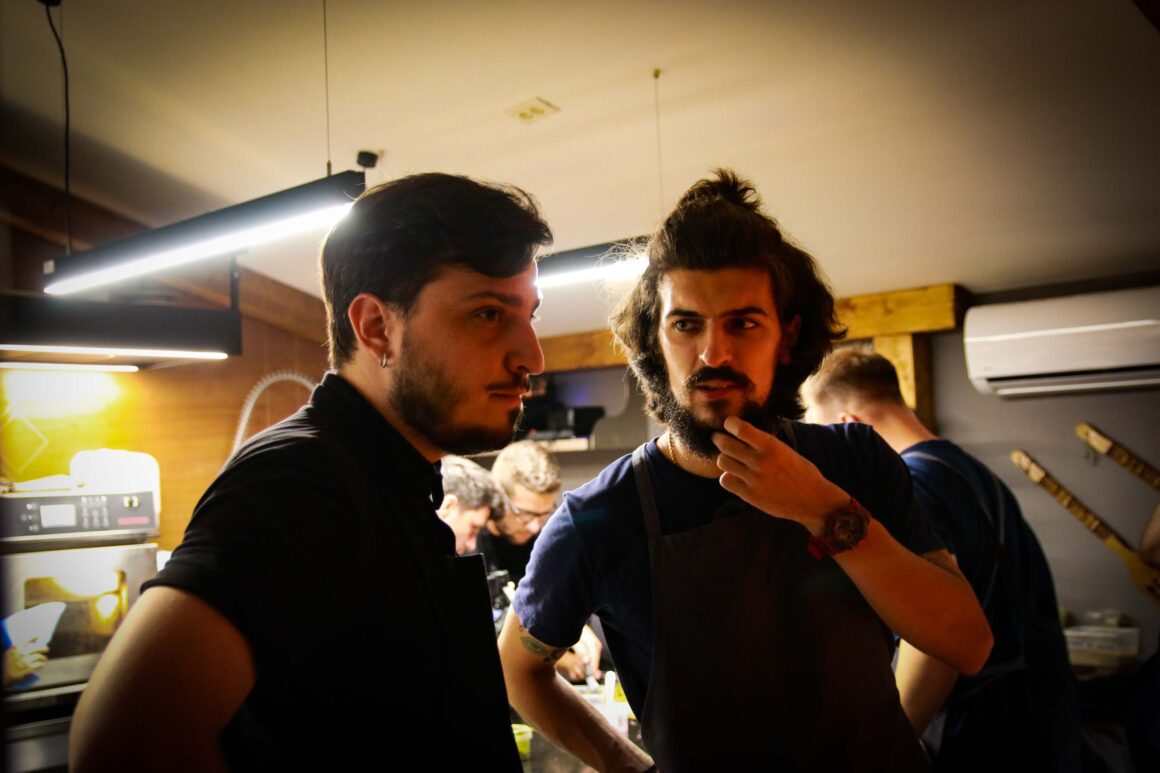

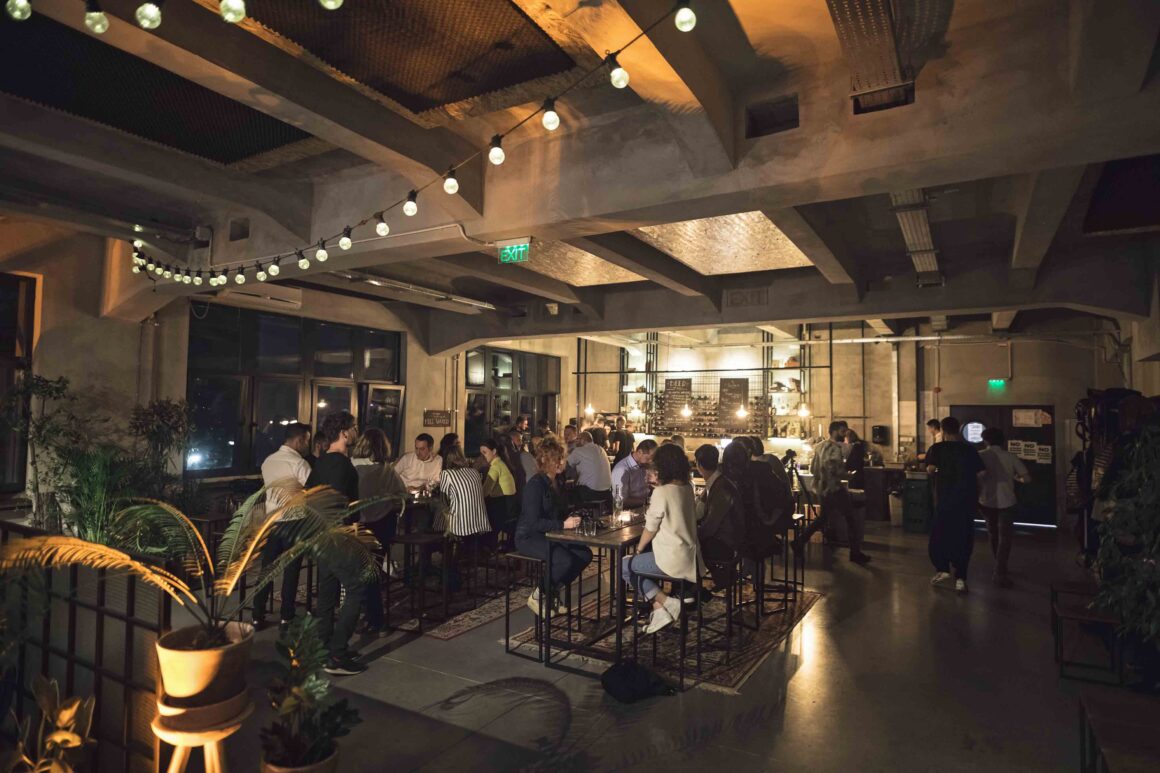

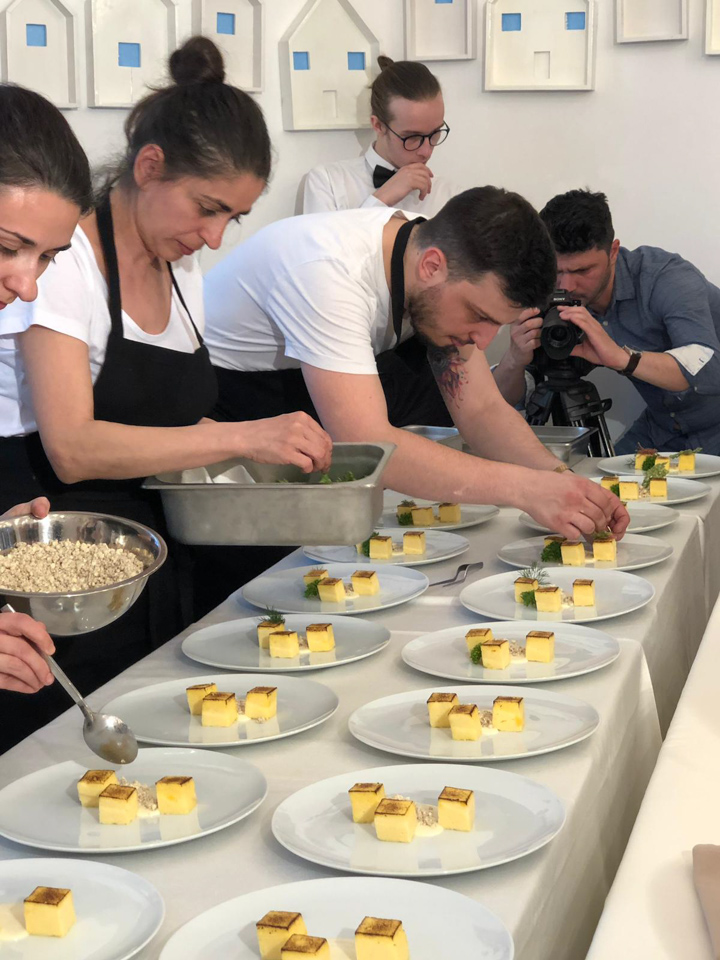

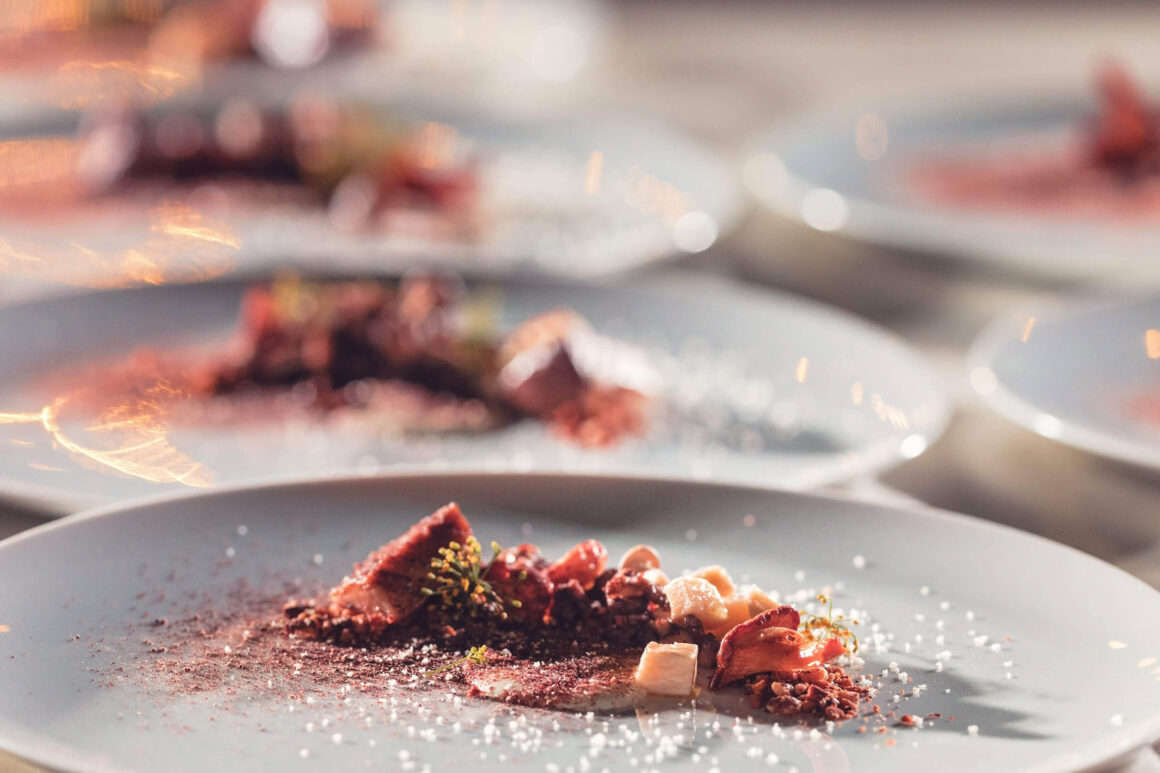

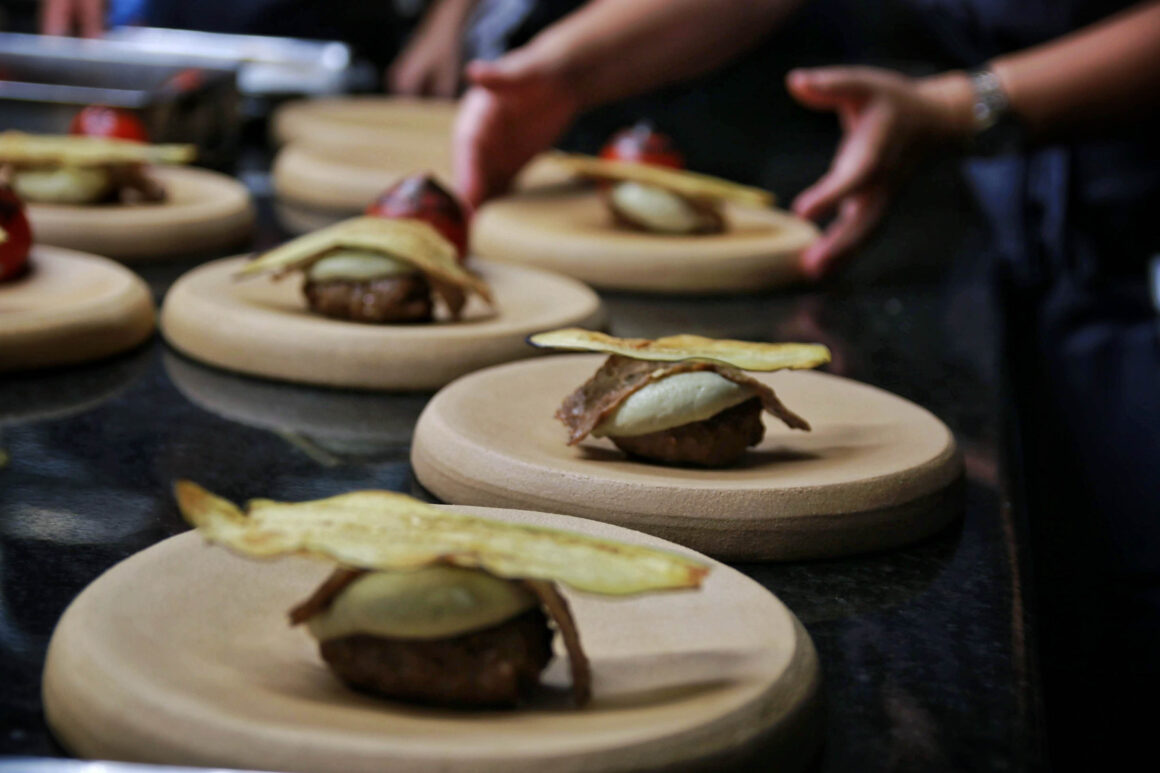

Going forward
Mihai and Bogdan have just released the first episode of their second season. The first dinner was organised with (fellow Masterchef alumnus) Alex Petricean, owner of the NOUA. With the new season, Mihai wishes to work more collaboratively with chefs.
The Fragmente team also wish to support micro-regional tourism and trace a micro-regional and cultural map.
Their dream is to thoroughly document the micro-regional food and music of Romania so it will not be lost for generations to come.
Do you wish to follow their project and give them your support? Check out their YouTube channel, Facebook page, and Instagram.


